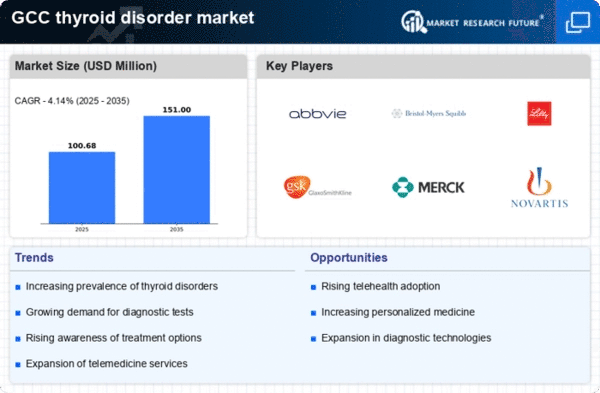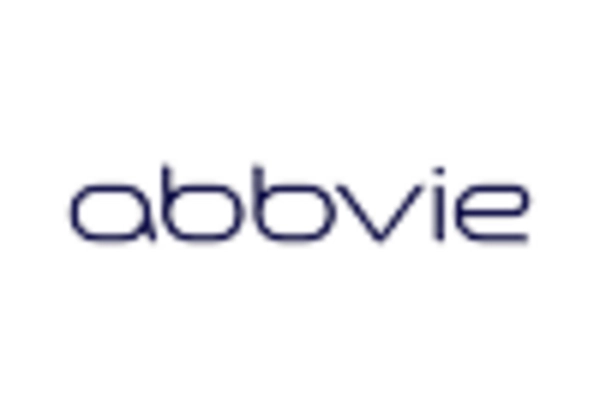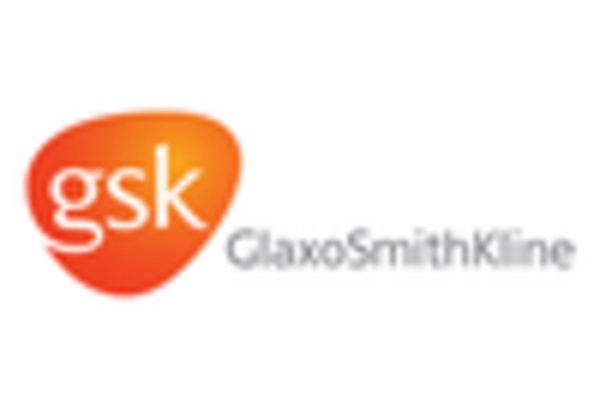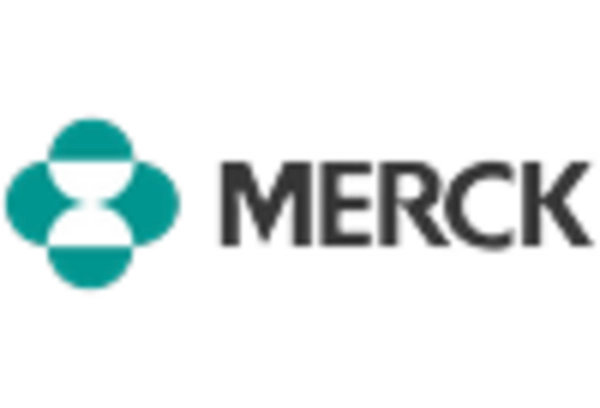Advancements in Treatment Modalities
The thyroid disorder market is significantly influenced by advancements in treatment modalities. Innovations in pharmaceuticals, including the development of new medications and therapies, are enhancing the management of thyroid disorders. For example, the introduction of novel hormone replacement therapies and targeted treatments is improving patient outcomes. Additionally, minimally invasive surgical techniques are becoming more prevalent, offering patients safer and more effective options. The thyroid disorder market is likely to see a surge in demand for these advanced treatment options, as healthcare providers and patients alike seek more effective solutions. This trend may also lead to increased investment in research and development within the sector.
Growing Demand for Diagnostic Testing
The demand for diagnostic testing in the thyroid disorder market is on the rise, driven by the need for accurate and timely diagnosis. With the increasing awareness of thyroid health, more individuals are opting for routine screenings and tests. The market for thyroid function tests, including TSH, T3, and T4 tests, is expanding as healthcare providers emphasize the importance of early detection. In the GCC region, the market for diagnostic testing is projected to grow at a CAGR of approximately 6-8% over the next few years. This growth is indicative of the thyroid disorder market's response to the rising need for effective diagnostic solutions, which are essential for appropriate treatment planning.
Increasing Prevalence of Thyroid Disorders
The rising incidence of thyroid disorders in the GCC region is a crucial driver for the thyroid disorder market. Studies indicate that conditions such as hypothyroidism and hyperthyroidism are becoming more common, with estimates suggesting that around 10-15% of the population may be affected. This increase in prevalence is attributed to various factors, including lifestyle changes, dietary habits, and environmental influences. As awareness grows, more individuals seek diagnosis and treatment, thereby expanding the market. The thyroid disorder market is likely to experience significant growth as healthcare providers enhance their focus on screening and management of these conditions, leading to increased demand for diagnostic tests and therapeutic options.
Impact of Lifestyle Changes on Thyroid Health
Lifestyle changes in the GCC region are having a notable impact on thyroid health, thereby influencing the thyroid disorder market. Factors such as increased stress levels, dietary modifications, and sedentary lifestyles are contributing to a higher incidence of thyroid disorders. The consumption of processed foods and a lack of iodine in diets are particularly concerning, as they are linked to thyroid dysfunction. As awareness of these lifestyle factors grows, there is a corresponding increase in demand for preventive measures and treatments. The thyroid disorder market is likely to adapt to these changes by offering more targeted interventions and educational resources aimed at promoting thyroid health and wellness.
Government Initiatives and Healthcare Policies
Government initiatives aimed at improving healthcare access and quality in the GCC region play a pivotal role in shaping the thyroid disorder market. Policies that promote early detection and treatment of thyroid disorders are being implemented, which may lead to increased screening programs and public health campaigns. For instance, the introduction of subsidized healthcare services and awareness programs can enhance patient access to necessary treatments. The thyroid disorder market stands to benefit from these initiatives, as they encourage more individuals to seek medical attention, thus driving demand for both diagnostic and therapeutic solutions. This proactive approach by governments is expected to foster a more informed population regarding thyroid health.
















